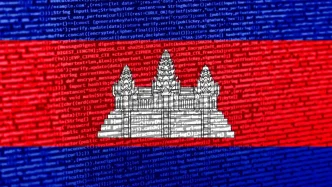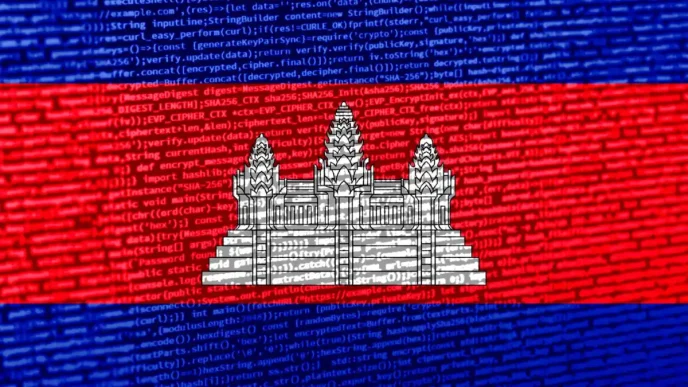Vietnam’s National Assembly has sparked intense debate over proposed constitutional amendments, a development that could reshape the country’s political framework if enacted. The discussions, initiated in early 2025, centre on reforms to the balance of power between the Communist Party of Vietnam (CPV) and state institutions, alongside provisions for greater public participation in governance. While details remain under wraps, the move has drawn both domestic scrutiny and international attention, raising questions about Vietnam’s trajectory as a single-party state in a rapidly evolving region.
The stakes are high. Vietnam, a nation of over 100 million, has maintained political stability under CPV leadership since reunification in 1976. Yet, as economic reforms have propelled it into global markets, calls for political modernisation have grown louder, particularly among younger generations and urban intellectuals. The proposed amendments, if confirmed, may address these demands—or risk alienating key segments of society by reinforcing centralised control.
A Push for Reform Amidst Stability
The current constitution, last revised in 2013, enshrines the CPV’s leading role while outlining the separation of powers among the National Assembly, the President, and the Prime Minister. Sources close to the Assembly suggest that the new proposals, debated since February 2025, could redefine these roles, potentially strengthening the presidency or expanding the Assembly’s oversight functions. There are also whispers of mechanisms for public consultation, though no official draft has been released.
“This is a moment of cautious optimism,” said Dr. Tran Minh, a political analyst based in Hanoi. “If reforms genuinely open space for dialogue, they could bridge the gap between the state and citizens. But if they merely consolidate power, disillusionment may follow.” Dr. Minh’s view reflects a broader sentiment among academics and civil society groups, who see the amendments as a litmus test for the CPV’s willingness to adapt.
Public opinion, gauged through social media platforms like X, shows a mix of hope and scepticism. Many users express a desire for transparency, with posts calling for the Assembly to publish the draft amendments. Others question whether any changes will meaningfully alter a system where the CPV holds ultimate authority.
Historical Context and Regional Implications
To understand the significance of this moment, one must look to Vietnam’s history. The 1992 and 2013 constitutions were landmark revisions, each reflecting the country’s transition—first from war to reconstruction, then from isolation to economic integration. The current debate emerges against a backdrop of regional shifts, with neighbouring countries like Thailand and Myanmar grappling with their own governance challenges. Vietnam’s leaders are likely aware that any misstep could reverberate beyond its borders, affecting its standing within ASEAN and its relations with major powers like China and the United States.
If the amendments enhance state accountability, they could position Vietnam as a model of gradual reform in a region often marked by political volatility. Conversely, a failure to address public aspirations might fuel unrest, as seen in past protests over land rights and environmental issues. Analysts note that while Vietnam has avoided the large-scale uprisings of some neighbours, underlying tensions—over inequality, corruption, and restricted freedoms—persist.
Economic and Social Dimensions
The constitutional debate is not purely political; it intersects with Vietnam’s economic ambitions. The country has emerged as a manufacturing hub, attracting foreign investment through trade agreements like the CPTPP and RCEP. Yet, economic growth has exposed disparities, with rural communities often left behind. If reforms include provisions for decentralisation, as some speculate, local governments might gain greater authority to address such gaps. However, no evidence confirms this direction, and central control over economic policy remains a hallmark of CPV governance.
Socially, the amendments could signal a shift in how the state engages with its citizens. The Vietnam Fatherland Front, a political coalition under CPV oversight, has historically mediated between the government and the public. Expanding its role—or creating new channels for input—might address growing calls for participation, especially among tech-savvy youth who use online platforms to voice concerns. Yet, sceptics argue that any such mechanisms would likely remain tightly controlled, limiting genuine dissent.
Challenges and Speculative Outcomes
Several challenges loom over the reform process. First is the question of consensus within the CPV itself. While the party projects unity, internal factions often debate the pace and scope of change. If hardliners prevail, reforms may be cosmetic at best. Alternatively, a progressive push could introduce meaningful checks on power, though this remains speculative and unconfirmed by official sources.
Another hurdle is public trust. Past government initiatives, such as anti-corruption campaigns, have been praised for intent but criticised for selective enforcement. If constitutional changes are perceived as serving elite interests rather than the broader population, they risk deepening cynicism. Analysts caution that without transparent dialogue, the process could backfire, though no evidence suggests this outcome is imminent.
Looking ahead, the amendments’ impact on Vietnam’s international image is worth considering. If reforms are seen as aligning with global norms on governance, they may bolster Vietnam’s credibility in diplomatic circles. For instance, a more independent legislature could strengthen its case for deeper ties with the European Union, which has pressed for human rights improvements alongside trade deals. However, these scenarios remain conditional, hinging on the yet-unrevealed content of the proposals.
Voices from the Ground
In Hanoi and Ho Chi Minh City, reactions vary. Nguyen Thi Lan, a 29-year-old software engineer, told this correspondent she hopes for “a system where my voice matters, not just in elections but in real decisions.” By contrast, Pham Van Hung, a 62-year-old retiree, expressed concern that rapid change could destabilise Vietnam’s hard-won peace. “We’ve seen what chaos looks like elsewhere,” he said. “I trust the Party to guide us, but they must listen too.”
These contrasting views underscore the delicate balance the CPV must strike. Vietnam’s leadership has long prioritised stability over experimentation, yet the constitutional debate suggests a recognition that standing still is no longer an option. Whether this translates into substantive reform or mere rhetoric remains to be seen.
A Critical Juncture
As the National Assembly continues its deliberations, Vietnam stands at a critical juncture. The outcome of this constitutional debate could define the country’s political landscape for decades, influencing everything from citizen-state relations to its role on the world stage. While optimism exists, so does caution, with many awaiting concrete details before passing judgment. For now, the process itself is a signal of intent—a rare public acknowledgment that governance must evolve with the times. If handled with transparency and inclusivity, it could mark a turning point for Vietnam. If not, it risks becoming a missed opportunity in a nation hungry for progress. The world, and Vietnam’s people, are watching closely.














